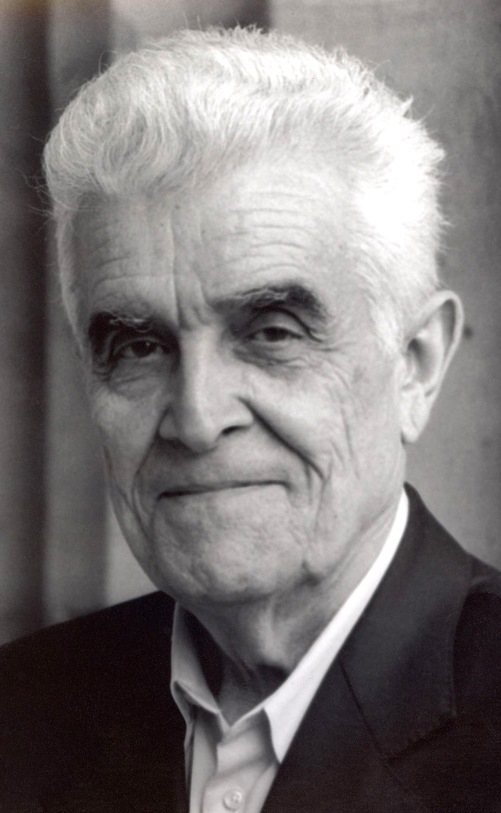
René Girard, French historian, literary critic and philosopher of social science (b. 1923 d. 2015). Representative of the school of French anthropological philosophy.
In The One By Whom Scandal Comes (2014) René Girard writes:
“Every culture takes a dim view of anyone who does not unconditionally prefer the native to the foreign, the inside to the outside […] The preference that cultures grant to themselves […] must be perpetuated at any cost. This preference is inseparably bound up with the identity, the autonomy, the very existence of these cultures.”1
A culture dies if its participants evince no special preference for it in the same way that a family would cease to exist if its members had no special loyalty or bias in its favor. If parents were as concerned with all children as their own, then their children would suffer from neglect and abandonment. Spouses must prefer their spouses, children their parents, and siblings each other if a loving family is to exist.
For many years American educators have been concerned with the supposed sin of ethnocentrism, which really is just anti-Western fervor, since no non-Western culture is subjected to the same criticism.
It would be truly obnoxious to go to China and complain that the universities were teaching Chinese culture and mostly ignoring Western achievements, or to look around at the Chinese population and complain about the lack of racial diversity. And yet, politically correct Westerners are happy to do this to themselves.
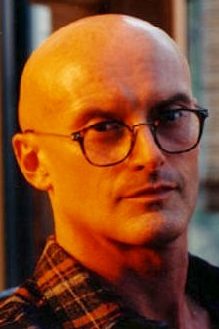
Ken Wilber, American author on transpersonal psychology.
Girard points out that Western culture has cycled between bouts of primitivism, most clearly seen in the fiction of the noble savage, and Western triumphalism. The Enlightenment embodied a mood of optimism, a “golden age of faith in the unlimited progress of a world brought together and guided by the West.”2 Two world wars radically diminished this belief, with WWII in particular “setting in motion the latest swing of the pendulum, the greatest primitivist wave of all, whose effects are still felt today.” Girard argues that multiculturalism today is just part of this oscillation.
Girard contends that this primitivist penchant for self-criticism, where any culture other than the West’s is admired in preference to the West, or rather an admiration is pretended, may have had some benefits in the past. However, the game is now sterile and self-destructive. Muslim terrorists implacably hate the West. The liberal elite ruling Western countries, controlling the media and education systems largely agree with the terrorists. The grounds for the hatred may be different among the liberals: for instance, remorse for the very real sins of colonialism, and the environmental effects of industrialization; but the underlying rejection of Western culture is the same.
In the moral hierarchy of egocentrism, ethnocentrism and worldcentrism, the idea is not that each level obliterates the ones below, but that each level transcends and includes the lower, as Ken Wilber puts it. A healthy ethnocentrism will include a love, concern and preference for one’s own culture, just as to love one’s neighbor as oneself3 means that egocentric self-love is not to be eliminated – just transcended but included. Without ethnocentrism, a person is restricted to narcissistic egoism and is prevented from ever reaching worldcentrism.

Roger Scruton, British philosopher, political theoretician and author.
Anyone aspiring to be educated, aims for a familiarity with one’s intellectual tradition; to read the great writers and thinkers. Barring the gift of clairvoyance, these thinkers and writers are necessarily to be found in the past. An interest in being educated means examining the collected works of our most esteemed ancestors. The invention of writing makes the thoughts of the long dead accessible to us. An individual devoid of the benefits of these thoughts is a very stupid creature. Those we consider wise were the beneficiaries of the contributions of other thinkers and writers.
Oral traditions are tenuous and delicate. The sum total of knowledge and wisdom has to exist in the living memory of tribal members and this total will be slim. The tribal elders have access only to what their ancestors could retain in active memory and to life experiences which are narrow and constricted. It is necessary to remember that the elders themselves are illiterate and are thus restricted to the thoughts and memories of a very limited number of people who themselves were aware of a tiny part of the world, geographically, culturally and chronologically.
In this context, self-criticism is mostly impossible. All efforts must be geared to simply retaining the painfully few things one’s predecessors have passed along in working memory.
Literacy makes self-criticism possible. Preservation of acquired wisdom can be taken for granted, at least, so it would seem. The invention of writing also vastly increases the possible sources of knowledge. Thousands of years of thoughts from every continent become available. The very smartest people, not of one’s tribe, but of recorded world history, can be read.
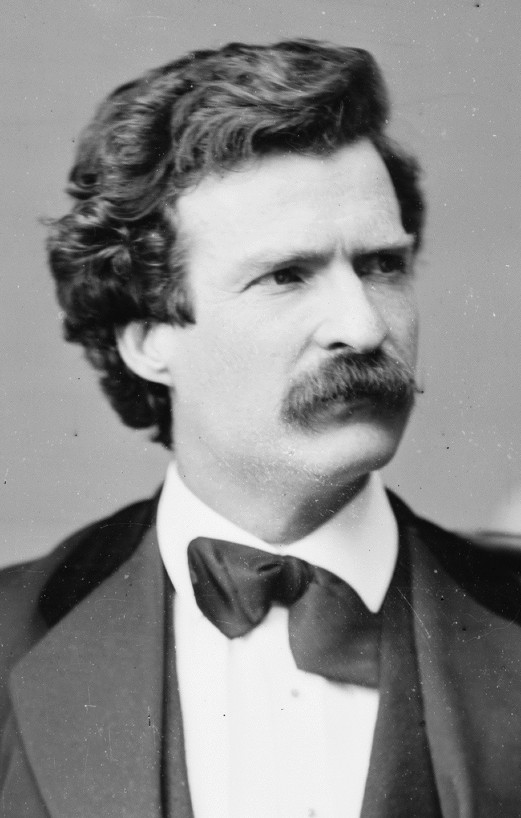
Mark Twain (b. 1835 d. 1910) American author and publisher (Brady-Handy photo portrait 7 Feb 1871)
However, “the culture of repudiation,” as Roger Scruton calls it,4 means that this fantastic record is rejected and self-criticism becomes frenzied and all pervasive. What is left is neither a functioning oral tradition nor literate culture. Most university courses simply condemn this accumulated wisdom; its insight into human nature and the human condition. The reasons include a rejection of “patriarchal culture.” Since there is no other culture and no other tradition, one is attempting to divorce oneself from one’s own intellectual heritage. When education becomes a one-sided examination of the supposed crimes of one’s ancestors and ignores all its achievements, why would anyone express enthusiasm for becoming educated? In what might education consist?
Imagining oneself to be superior to one’s parents and sitting in judgment upon them is synonymous with adolescent petulance. As Mark Twain writes, “When I was a boy of fourteen, my father was so ignorant I could hardly stand to have the old man around. But when I got to be twenty-one, I was astonished at how much he had learned in seven years.”5
Education in high school and university becomes an indoctrination into political perspectives that act as universal solvents, destroying all inherited wisdom. One can simply point at the gender, class or race; meaning the maleness, whiteness and class of our cultural forebears and use this as a reason to reject them. Politics replaces meaningful scholarship and historical knowledge. Familiarity with the writings of the enemy then becomes as morally suspect as having memorized large chunks of Mein Kampf. This means intellectual laziness can be combined with complete social approval from peers.
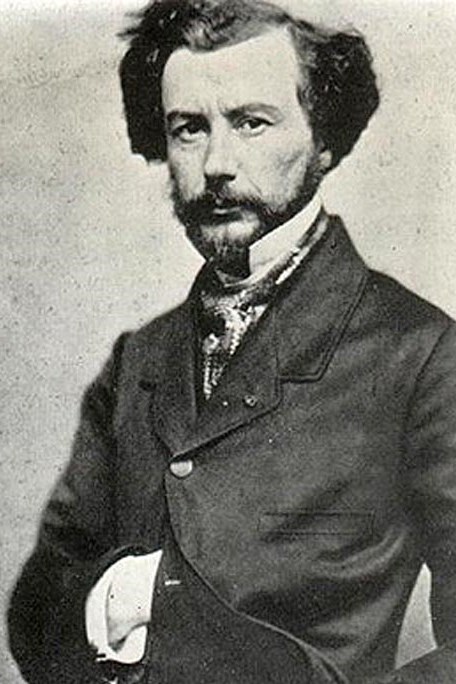
Gustave Flaubert (b. 1821 d. 1880) French novelist and exponent of literary realism.
Most undergraduates probably have little interest in becoming educated. No embarrassment is shown by students when their ignorance is revealed about any topic. The former situation in particular has probably always been the case concerning the majority of people. An interest in useless academic subjects has always been the domain of the cultivated few. However, when the professors themselves reject the past, and since the future does not exist, one is left with a vacuum and nihilism perhaps never before seen.
The rejection of culture in toto is incredibly unfair. The post-colonial, multi-culti advocates owe it to their intellectual forebears to at least address each individual member of the canon they dismiss. Flaubert, for instance, strongly sympathizes with his female protagonist in Madame Bovary. She is no pawn in some kind of male-supremacist propaganda, or whatever crime feminists might imagine. In Crime and Punishment, Dostoevsky describes Marmeladov’s drinking and all the terrible consequences for his family. No sex is elevated above the other and neither is misrepresented nor shallow. Total sympathy and pity is shown for Sonia and the rest of her family. Shakespeare too is famously self-aware and plays with male and female roles with their benefits and limitations, with a charming sense of humor to boot.
To properly appreciate Shakespeare or any other acknowledged literary genius, one must be familiar with Greek tragedy, Roman literature, Western history and the Bible and every other, usually male, genius who preceded him. Each genius read the canonical writers and benefited from the experience.
The post-colonial, multi-cultural professor bypasses meaningful and respectful criticism based on understanding and knowledge and simply throws phrases around that condemn her superiors like the aforementioned petulant teenager and without regard for fairness and justice.
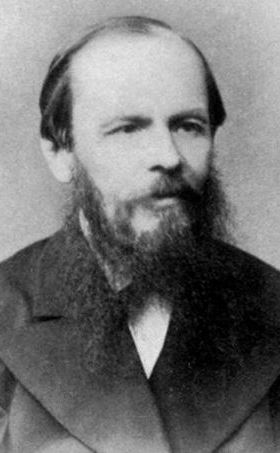
Fyodor Dostoyevsky (b. 1821 d. 1881) Russian novelist, journalist and philosopher.
A delightful scenario would be a multi-culti encountering a panel of the greatest literary, philosophical and religious figures of the last two and half thousand years and having to answer for and try to justify his intellectual crimes against these people. The humanity, insight and self-deprecating wit of Cervantes, for instance, would chasten the most die-hard fool if the fool had any ability to comprehend her inferiority.
Nassim Nicholas Taleb recommends waiting fifty years before reading most books to see whether they are simply a passing fashion or whether they do indeed hold up to careful examination. This would seem to be an effective remedy for politically correct notions which change from month to month.
A desire to be educated in a Western context is a desire to have a working knowledge of Hesiod and Homer, Thucydides and Herodotus, Plato and Aristotle, the Bible, the Church Fathers and every other canonical writer and thinker until now. When this desire is lost and what is offered instead is the culture of repudiation, then universities lose their raison d’être. Adolescents are encouraged to foster their sense of resentment (I hate you, Dad) and are taught simple formulas that ostensibly justify this feeling. Scapegoating as the bond of shared hatred against the perceived enemy runs rampant.
To rebel against rebellion is to risk social ostracism and becoming the next scapegoat victim. The favorite target are people who are regarded as insufficiently sympathetic to those touted as victims. As René Girard says, normally members of a culture take a dim view of those who oppose their own culture since cultural self-preservation depends on loyalty and a preference for one’s own traditions. However, since the hegemony of primitivist multiculturalism condemns the West as oppressive, to love and prefer Western culture and its traditions, is to be regarded as evil. The rare adolescent attribute of wanting to be educated is thus seen as an abomination. Awareness of the past and thus all knowledge, since future knowledge does not exist, is morally permissible if it serves the purposes of the politically motivated fanatics. If it does not, the truth is no defense.

Adj. Prof. Richard Cocks teaches philosophy at SUNY Oswego. Originally from Christchurch, New Zealand, he is presently based in the United States. Dr. Cocks is an editor and regular contributor at the Orthosphere and has been published at The Brussels Journal, People of Shambhala, The John William Pope Center for Higher Educational Policy and will have a book review of Conversations with Roger Scruton at The University Bookman later this year.
Endnotes:
- René Girard, The One By Whom Scandal Comes (Michigan State University Press, 2014) pp. 23-24.
- Ibid. p. 26
- Mr. 12:31; Mt. 22:39; Le. 19:18.
- Roger Scruton, “Culture Matters”, Lecture at the Ingersoll Symposium on “The Importance of Culture” Intercollegiate Studies Institute, Belmont Abby College, Belmont, North Carolina, 14 October 2004.
- [This quote is attributed to Mark Twain but it has been disputed whether he himself is its author – SydneyTrads Editors]

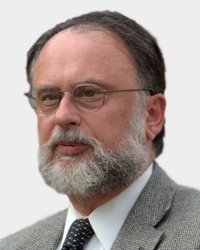



Leave a comment